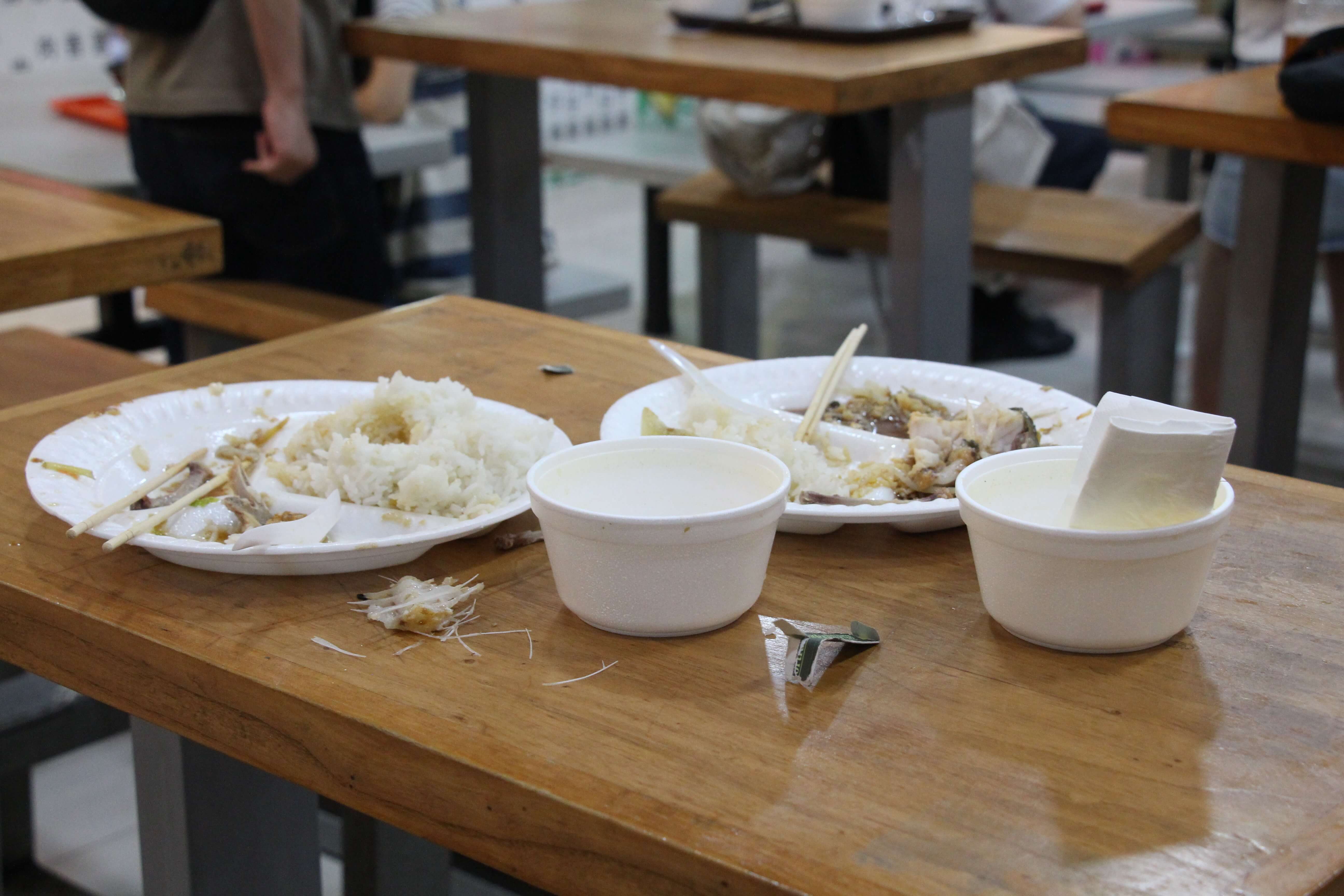
Made of wheat, taste like tree skin and hard to chew — it may not be the finest option if you are looking for appealing and delectable food to satisfy your appetite, nor is this the most ornamental tableware to plate up your meals. But for people who want to avoid single-use plastic crockery, an edible plate might be the perfect alternative to curb plastic waste.
Paper plates normally take five years to decompose while plastic ones take at least 500 years, but an edible plate would disappear in 30 days if it is not eaten up. A Polish technology company, Biotrem, curated the eco-friendly plates with natural wheat bran by heating and compressing the wheat into solid dishes — a process that requires no fossil fuel at all. The plates can hold cold or warm food with a temperature up to 350°F, and are microwavable and ovenproof.
GreenBB, a local social enterprise has been importing edible plates from Poland since they first found the organisation in 2018.
"Some environmental groups merely ask people to behave in certain ways to benefit the environment, but we would like to take a further step by motivating and inspiring people to protect the environment using creative ways," said Jayford Wong, founder of the enterprise.
The group, which includes 20 young people, organises experimental activities like green parties and workshops with schools and NGOs in a bid to raise eco-consciousness in the city which produces the most plastic waste in the Asia-Pacific region, with a per person plastic disposal rate at around 400g every day.
"Our participants like the plates very much, not because of the taste but the fact that they are fully biodegradable. The plates will disappear from the Earth whether they like to finish them up or not," said Mr. Wong, who said he had never really eaten a whole plate himself too.
"Even if I cannot finish the plate after a meal because the wheat would always fill me up, but since it is going to degrade, I’m not doing any harm to the environment," he added.
According to the latest solid waste monitoring report by the Hong Kong’s Environmental Protection Department, the daily waste disposed per capita in 2017 was the highest since 1991, with plastic dining ware disposal alone up by 7.7% compared to 2016.
Consumers may not be aware that they are contributing to a crisis of plastic waste that will blight their future generations when ordering from food delivery apps or dining out at food courts. The food they anxiously wait for is come together with a tremendous amount of plastic items that will live in the landfill for at least five centuries after being used only once.
"Plastic is a by-product of petroleum, which is a type of fossil fuel. If we keep digging out petroleum to produce plastic, we are burning more fossil fuels to heat the Earth," said Karen Ho, Head of Corporate and Community Sustainability for WWF-Hong Kong's Climate programme. "If emissions continue to increase, the global average temperature is likely to rise beyond 1.5 degrees Celsius, a danger line set by the United Nations."
But Ms. Ho remained sceptical whether edible dining ware is the direct subsidiary of disposable crockery.
"We don't necessarily have one solution or a single product replacing the other and we can solve the problem," Ho said. "Even if we have the awareness to cut down plastic waste, there are gaps between good intentions and actual actions. We have to consider whether the new option available is convenient for us to practice, what are the benefits and costs?"
Josa Chan, who owns two Chinese restaurants in Kowloon City, said she welcomes the idea of edible crockery but it would not be an option if it is too costly. "If there is something cheap and eco-friendly to replace single-use items, I think many businesses would be up for the alternatives. But first of all, it has to be cheap."
GreenBB imports edible plates from Poland with a heavy transportation fee accounting for 80% of the total cost. Biotrem's suggested retail price for a 10-pack of edible plates is US$5 and US$30 for a 100-pack, which is about three times more than the cost of plastic plates that Chan purchases.
"Normal citizens or small businesses would not be able to afford the high price, so we are trying to produce simpler versions of edible utensils and crockery which can last for two to three days using waffle machines and hot milk," he said. "These are handy ingredients with easy steps, we hope people would understand that they can use simple and innovative ways to conserve the environment. Being eco-friendly could actually be a lot of fun."
《The Young Reporter》
The Young Reporter (TYR) started as a newspaper in 1969. Today, it is published across multiple media platforms and updated constantly to bring the latest news and analyses to its readers.

Issuing telescopic batons to off-duty police officers sparks concern

Women's football in Hong Kong: still a long way to go




Comments